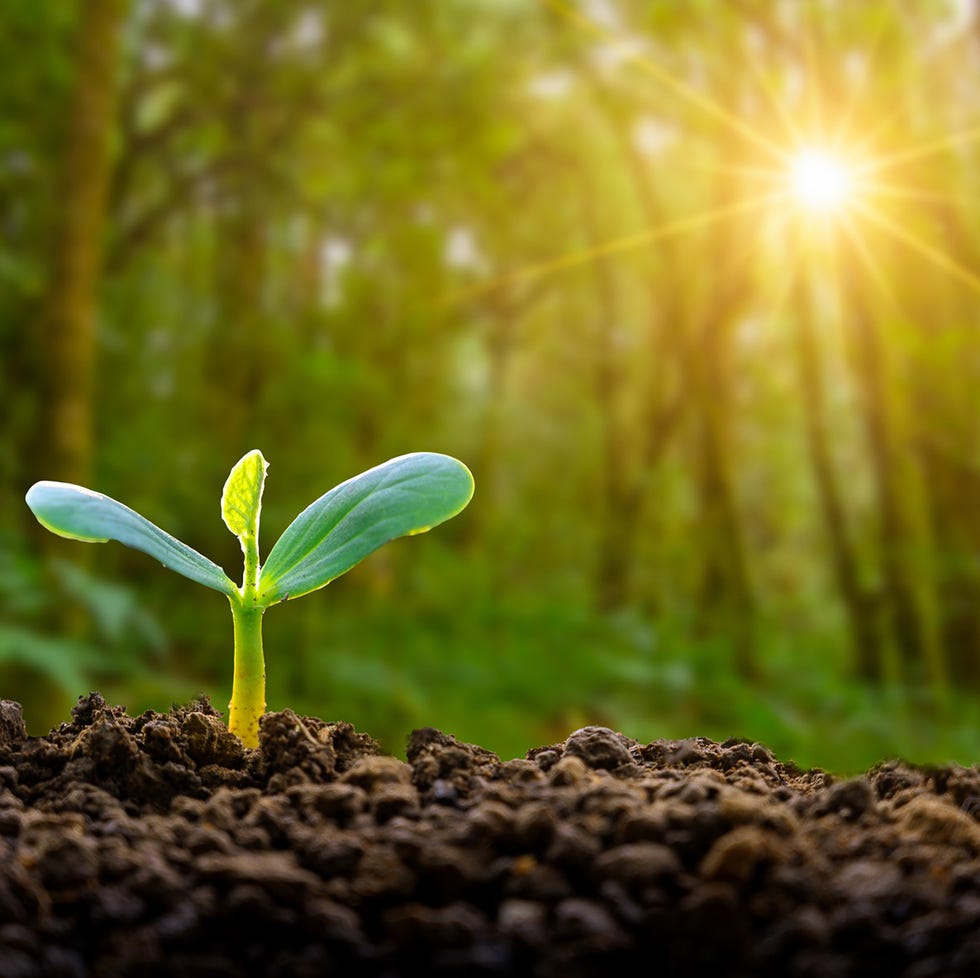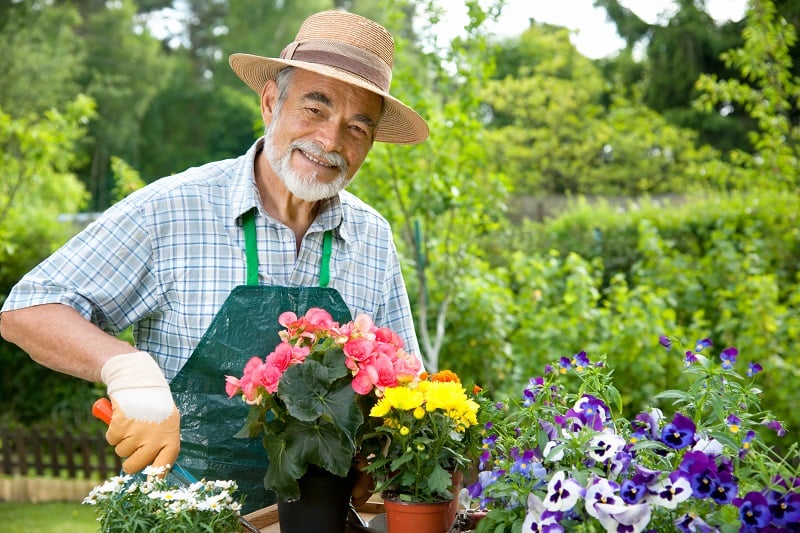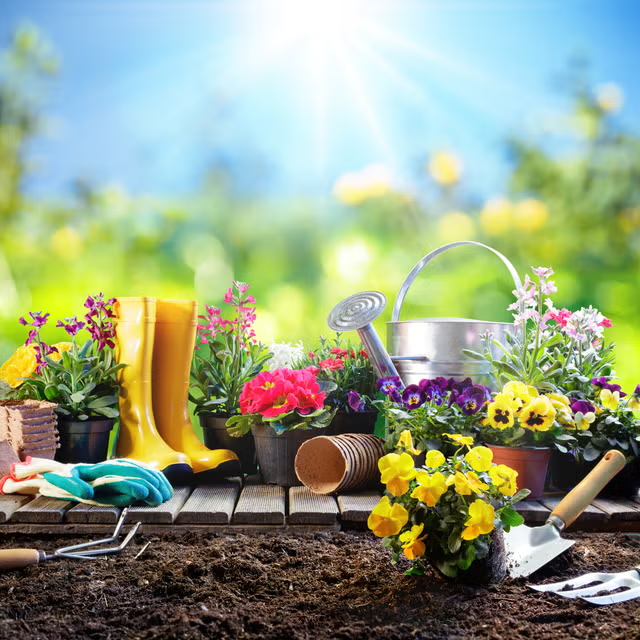Digging In: The Important Master Gardening Tools for Beginners
Wiki Article
Expanding Environment-friendly Thumbs: a Beginner's Journey Into the World of Gardening
Are you eager to get your hands filthy and start growing your own garden? Look no additional! In this post, we'll take you on a novice's trip into the world of gardening. You'll find out about selecting the right plants, comprehending soil and compost, and vital gardening tools. We'll also teach you watering and fertilizing strategies and just how to manage usual yard bugs. Prepare to cultivate your green thumb and watch your yard prosper!Selecting the Right Plants
1. You require to examine your gardening room and identify the number of plants that will certainly fit easily. This step is critical since overcrowding can cause stunted growth and condition. Step the measurements of your garden beds or pots and compute the offered room. Think about the fully grown size of the plants you mean to expand. Some vegetables and natural herbs call for more area than others, so it's vital to do your research study.As soon as you have a clear idea of your gardening area, it's time to pick the right plants. Consider what you enjoy eating or what flowers you discover most enticing. Consider the climate and sunlight problems in your location. Particular plants thrive in full sun, while others like partial color. Keep in mind of any type of microclimates in your yard, such as locations that obtain more or less sunlight than the rest. This will help you choose plants that are fit to your certain problems.
It's also necessary to consider your level of gardening experience. Choose for plants that are easy to grow and call for marginal upkeep if you're brand-new to horticulture. Natural herbs like rosemary, mint, and basil are flexible and excellent for novices. Furthermore, consider the length of your expanding period. Pick plants that have a much shorter maturity period if you stay in an area with a shorter growing period.
Comprehending Soil and Garden Compost
Soil is the structure of your yard, providing nutrients, water retention, and support for your plants. It is essential to have a great understanding of your dirt kind, whether it is sandy, clayey, or fertile, as this will identify the types of plants that will prosper in your yard. Bear in mind, a productive and healthy and balanced dirt is the crucial to an effective garden, so take the time to understand your dirt and include compost to ensure your plants flourish.
Vital Gardening Devices
Now that you recognize the significance of dirt and compost, allow's explore the crucial gardening devices you'll need to grow your green oasis. Among one of the most standard tools you'll need is a yard trowel. This small portable tool is ideal for excavating small openings, hair transplanting plants, and scooping dirt. Another vital device is a garden fork. This strong device is used for loosening up dirt, breaking up clumps, and transforming garden compost. A good pair of horticulture handwear covers is a must-have to secure your hands from thorns, irritable plants, and dirt. Search for handwear covers that are sturdy, breathable, and offer a great hold. A yard tube or watering can is important for maintaining your plants moistened. Choose a hose pipe with a spray nozzle that enables you to readjust the water circulation and stress. A sturdy pair of pruning shears or secateurs is necessary for cutting and forming your plants. Look for shears with a sharp blade and comfortable deals with. Last but not least, a yard rake is beneficial for leveling dirt, getting rid of particles, and spreading mulch. With these vital devices in your horticulture collection, you'll be well-appointed to develop and keep your environment-friendly sanctuary.Watering and Fertilizing Methods

Dealing With Common Yard Pests
As a beginner garden enthusiast, you may run into typical garden parasites that can damage your plants. These parasites can vary from insects like caterpillars, beetles, and aphids, to small pets like squirrels and bunnies. It's essential to be able to recognize and deal with these pests effectively in order to protect your plants and make sure a successful yard.Among the primary steps in taking care of yard insects is to regularly check your plants for any indications of problem. Search for eaten leaves, holes in the vegetation, or the presence of little pests. If you find any kind of pests, it's crucial to act right away to avoid them from spreading and triggering more damages.
There are several methods you can utilize to manage garden insects. Furthermore, there are organic insect control sprays offered that can assist discourage and get rid of typical garden insects.
Remember, prevention is key when it comes to dealing with garden pests. Maintaining your yard free and clean of debris can help in reducing the likelihood of an infestation. On a regular basis getting rid of weeds and dead plants can additionally help get rid of concealing places for parasites.

Conclusion
Congratulations on finishing your novice's journey right into the world of gardening! By picking the right plants, comprehending dirt and compost, utilizing important horticulture tools, and grasping watering and feeding techniques, you have actually established yourself up for success. Do not neglect to stay attentive in dealing with typical yard pests to guarantee your plants grow. With your newfound understanding and environment-friendly thumbs, your garden will grow and bring you countless delight and appeal (gardening tips for beginners). Delighted horticulture!Soil is the foundation of your garden, supplying nutrients, water retention, and assistance for your plants. It is vital to have an excellent understanding of your dirt kind, whether it is sandy, clayey, or fertile, as this will certainly establish the kinds of plants that will certainly grow in your yard. Bear in mind, a healthy and balanced and abundant dirt is the vital to an effective yard, so take the time to comprehend your soil and integrate compost to ensure your plants thrive.
As a beginner garden enthusiast, you might run into typical garden insects that can inflict havoc on your plants. It's important my review here to be able to recognize and deal with these bugs successfully in order to secure your plants and guarantee a successful yard.
Report this wiki page